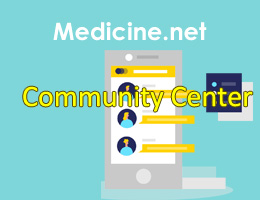Having a Healthy Heart May Support Brain Function As You Age
By Sarah Simon
Fact checked by Nick Blackmer
Eternity in an Instant / Getty Images
Key Takeaways
A new study found that markers of a healthy heart were associated with better brain function.
More research is needed, but this study highlights the need for understanding underlying mechanisms driving heart and brain health.
While you cannot change the structure of your heart directly, there are steps you can take to support your heart and brain.
Both your brain and heart health benefit from similar lifestyles: exercising, eating right, and no smoking. But new research links the two, finding that a healthier heart may lead to better brain function.
Researchers from the Queen Mary University of London and the University of Oxford in England found that, regardless of various lifestyle and demographic factors, hallmarks of a healthy heart impact your brain function.
Specifically, participants with healthier heart structures performed better at problem-solving and had quicker reaction times.
"Our results show that people who do better in those tests have a healthier heart structure and also healthier heart function," study author Zahra Raisi-Estabragh, PhD, British Heart Foundation Clinical Research Training Fellow, tells Verywell.
Raisi-Estabragh adds that past research links heart disease to dementia.
"We're seeing a lot more illnesses related to older age, like heart disease and dementia," she says, "And there are suggestions that these age-related conditions may be linked in some way."
Because Raisi-Estabragh and colleagues did find links between heart health and cognitive function in people without the age-related disease, their research suggests that there are underlying mechanisms linking the two. People with healthier heart structure and function may be less likely to develop dementia just by virtue of their heart anatomy and the way it supplies oxygen-rich blood to the brain.
The study was published in European Heart Journal—Cardiovascular Imaging in May.1
Measuring the Heart and Brain
Researchers gathered data from the UK Biobank, a large, long-term collection of biological and medical data of United Kingdom residents.
They evaluated 29,763 healthy participants (average age, 63) with cardiovascular magnetic resonance (CMR) imaging data (like an MRI for the heart), fluid intelligence, and reaction time.
To test fluid intelligence, they used 13 verbal-numeric reasoning questions, while reaction time was scored through a timed pair-matching exercise. They also looked for certain features within the heart's structure that indicate a healthier organ.
The tests adjusted for several outside factors like age, sex, smoking, exercise levels, and more. This helped researchers estimate heart and brain relationships regardless of individual differences.
They found that better cognitive performance (higher fluid intelligence, lower reaction time) in men and women of different ages was associated with healthier heart structures.
Because all of these heart characteristics are considered hallmarks of a healthy heart, Raisi-Estabragh says, it's clear that heart structure and function and cognitive performance are related, regardless of other individual differences.
"What we demonstrate importantly in our study is that the demographic, lifestyle, and morbidity processes don't fully explain the observed associations [between heart health and dementia]," she says. "And so this means that looking for alternative biological links is worthwhile."
How the Heart Relates to the Brain
Even though the heart and brain serve different functions, the current study suggests possible underlying mechanisms that explain how they work together to contribute to overall health.
The heart receives deoxygenated blood from the veins. It then oxygenates the blood with help from the lungs, and finally sends the newly oxygenated blood to the rest of the body. This loop is made possible through simple expansion and contraction, producing a beat. The heart beats about 100,000 times a day.
If something in this processes doesn't work well, it could compromise the supply of blood to the brain.
Raisi-Estabragh adds that small studies have shown that processes that drive Alzheimer's might also drive heart disease. "They've shown that abnormal proteins that deposit in the brain in Alzheimer's disease may also deposit in the same way in the heart muscle," she says. Still, these studies need further examination.
Another idea that's been proposed, Raisi-Estabragh says, is that there might be systemic processes in the body that drive aging across multiple organ systems. "The idea is that there is low-grade inflammation in the body that causes accelerated heart aging, brain aging, as well as, for example, musculoskeletal aging," she says.
What This Means For You
Supporting your heart health now may improve your overall brain health too. Some steps you can take include exercising regularly, reducing stress, eating a balanced diet, and refraining from smoking.
Supporting Heart and Brain Health
Although this study focuses on aspects of the heart that we can't directly change, various lifestyle aspects are known to support heart and brain health.
"At the moment, the best advice is a healthy, balanced lifestyle," Raisi-Estabragh says. "Within that, I'd say the top ones would be exercise and not smoking."
In addition, the National Heart, Lung, and Blood Institute recommends:
Eating a healthy, balanced diet
Maintaining a weight that's right for you according to your doctor
Staying away from tobacco and secondhand smoke
Controlling cholesterol and blood pressure
Drinking alcohol only in moderation
Managing stress
"In general, it seems that things that you do to look after your heart are key in maintaining the health of your brain," Raisi-Estabragh says.




Post comments